We’ve been culling at home and listing a lot of stuff on Facebook Marketplace lately. It’s a great (and free) tool to use and can help sellers reach potential buyers. However, there is a big downfall- Scammers. In the last month, I’ve had at least 10 scammers contact me, so I wanted to explain how to spot these scammers and how they work so hopefully you’ll be more aware of what to do. At the end of the article, I’ll add my conversation with one of them for your entertainment.
Courier Scam
- This starts with them asking if the item is available.
- Once you have confirmed it is, they’ll tell you that the price suits them (wow, they didn’t even negotiate on price- how cool is that!?), and they’d like to pick it up soon (often tomorrow). This will get you excited that the item will be sold quickly and at the full price
- They’ll then tell you they are at work (or somewhere similar) and they can’t pick it up. But they’ll send a courier (TNT, UPS, GLS etc) with an envelope of cash. They’ll tell you that you can then check the envelope and once the cash is confirmed, you give the item to the courier.
- Once you have agreed to that, they will explain that to complete the transaction they’ll require the following information: First Name, Last Name, Address, Item Price, Email, Time of delivery.
- You’ll then receive an email from “TNT” (or whichever courier they are using in the scam) asking that you pay the insurance fees of the service, which of course will be included in the envelope of cash so you won’t be out of pocket.
- If you click the link and pay what they are asking for, they get what they want (money).
- If you try to pull out of the transaction at that point, they will try and scare you. They will tell you that there are irreversible penalties and imprisonment if you don’t pay. At one point they even tried to tell me that I’ll be arrested because TNT is in collaboration with the police (crazy right!?). This can panic people and force them into making a payment because they don’t want to be issued with a large fine or potentially arrested.
Below are just a couple of snippets of the conversation. Head to the end of this blog post for the entire conversation. It was an entertaining one that’s for sure!

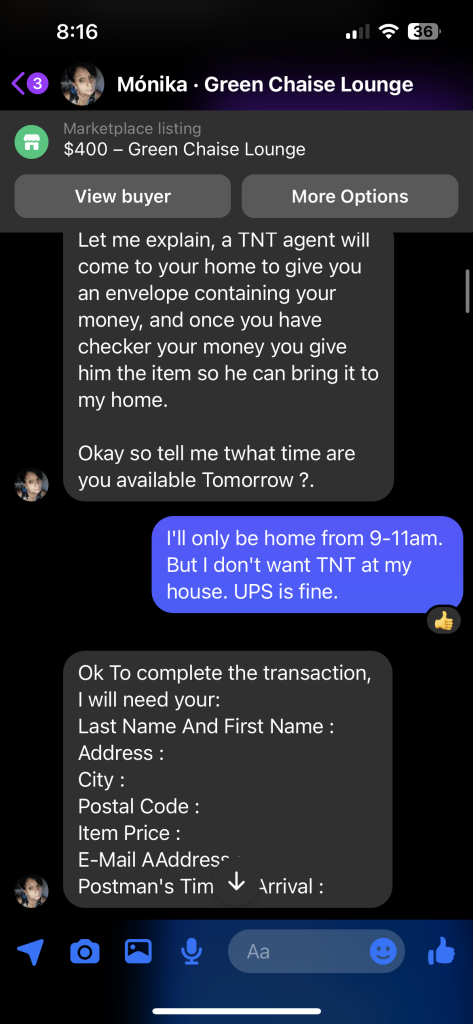
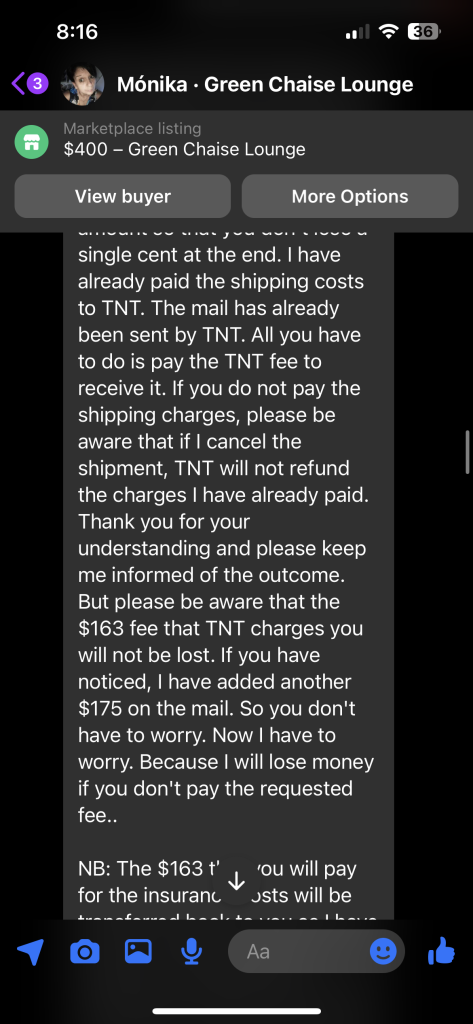

PayID Scam
Firstly, please note that using PayID is not an actual scam. It is a legitimate and fast way to make payments to someone. However, it is another tool that the scammers use to try and trick you.
- This starts with the buyer asking if the item is available
- They may ask some extra questions to make it look legitimate like “How long have you had it?” “Does it work ok?” “Where are you located?” etc
- They’ll also not negotiate the price with you.
- They then explain that someone, usually a relative, will come to pick up the item and that they will pay via PayID.
- Once you’ve sent them your PayID you’ll receive an email or SMS saying that the funds have been sent but there is an issue receiving the payment because PayID limits exist on non-business accounts.
- You’ll then be asked to transfer funds to increase your PayID limit so you can receive the payment. It will explain that once the payment has been received you will both the refund and the buyer’s money. Or they may say that they’ll pay the funds for you as long as you promise to refund them the money.
- Either way, if you pay, you will lose your money.
What to watch out for
- Be cautious if they ask to pay via PayID or an envelope of cash via courier.
- Check the email address it is coming from. A legitimate business will use its own domain. For example service@tnt.com.au. If it is something like service.TNT@gmail.com, it will be fake. The name in the “from” part of the email might be “Service TNT” but make sure you check the email address itself.
- Hover over any links in emails. In the bottom corner of the screen, it will show what the actual link is. Check to see if this is going to a legitimate link.
- Check for spelling and grammar mistakes, this happens often in scam
- Check their friends. If they are local, you may notice some friends in common. If the only posts you can see are foreign, then the account is probably dodgy.
Now for the fun stuff
I spent a day and night chatting with the person trying to scam me. I figured if they were wasting time with me, they weren’t scamming someone else. It was also a good way to see how they work and to be honest, I had a little fun. I had to put the paintbrush down every time they replied to find out where the story was going next. So, if you have a few moments, check out the screenshots below to follow the story of me and my new friend “Monika”. *NOTE: I have nothing against our local TNT couriers, in fact, they are great, I was trying just to bait the scammer.
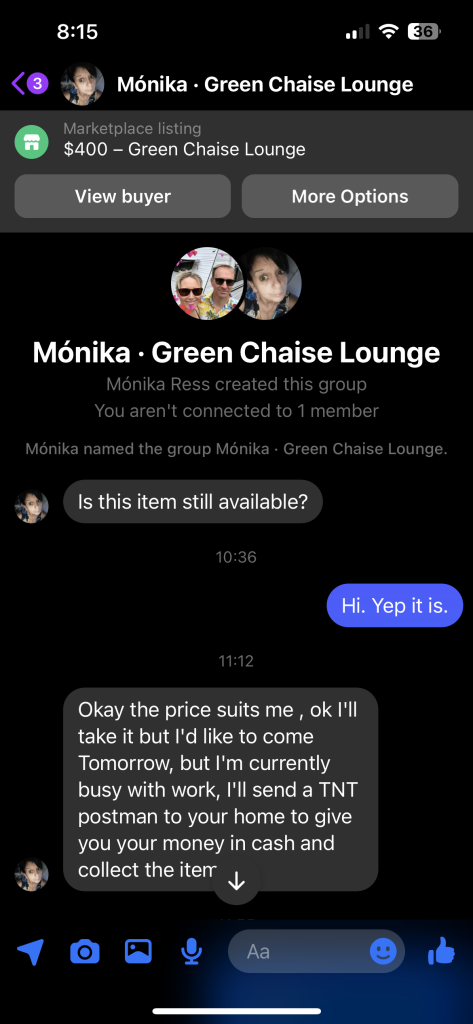
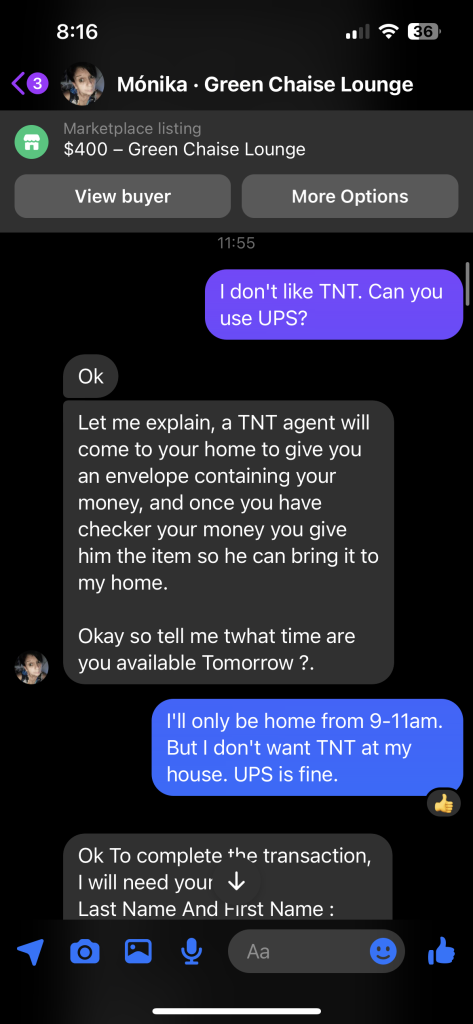
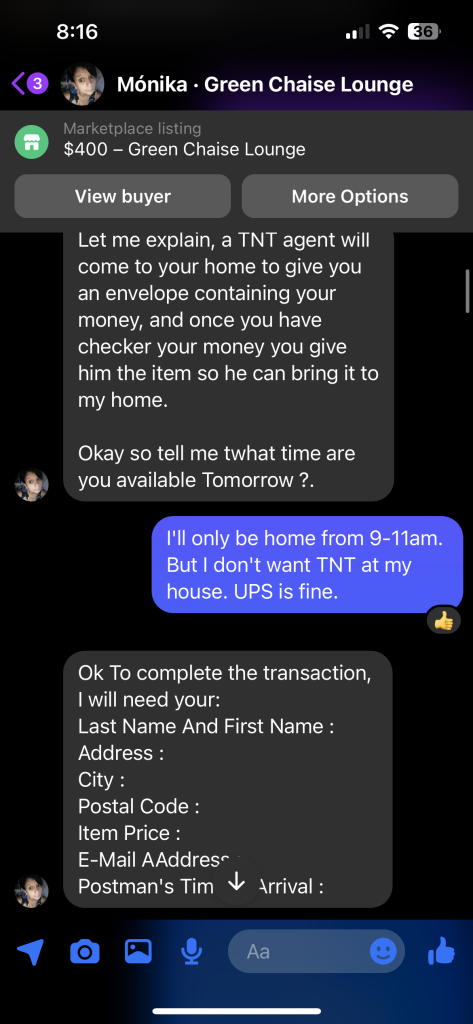


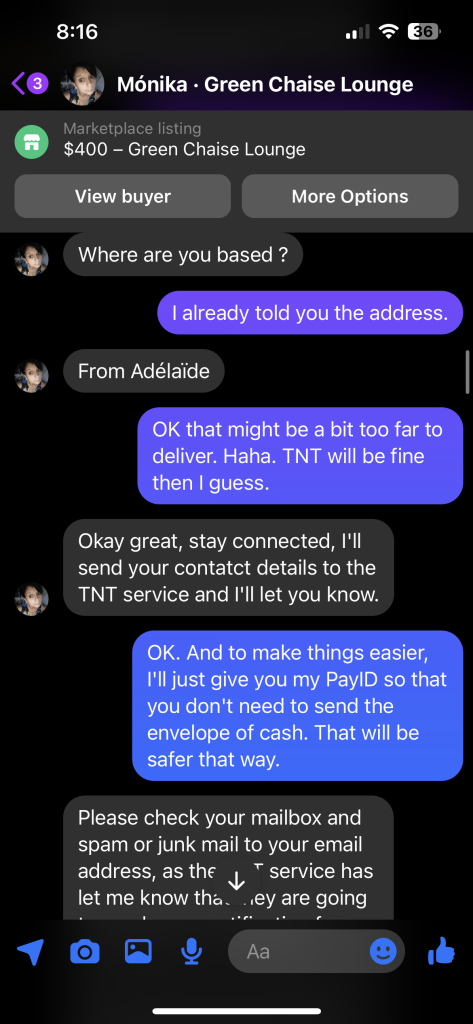
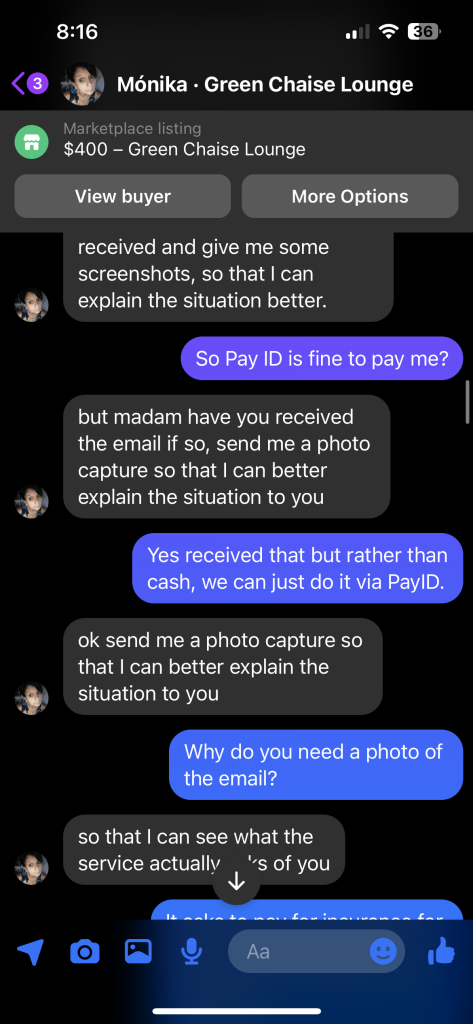

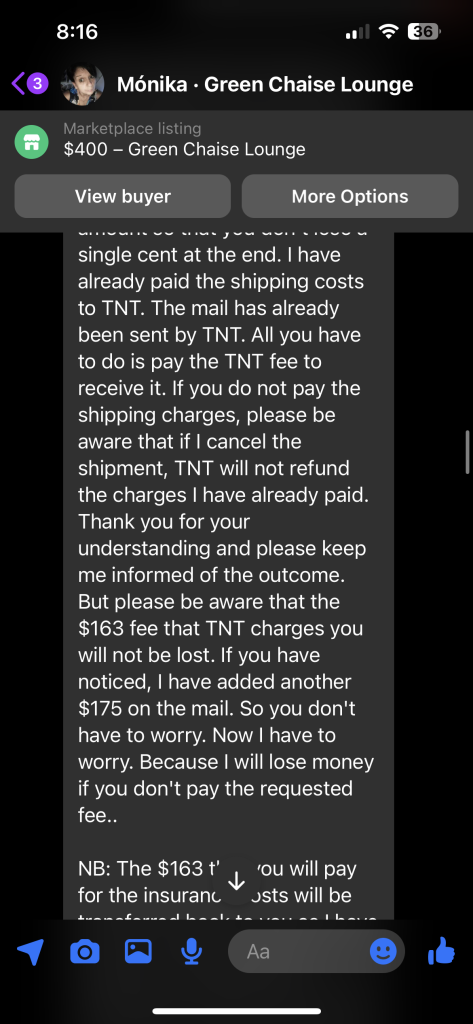

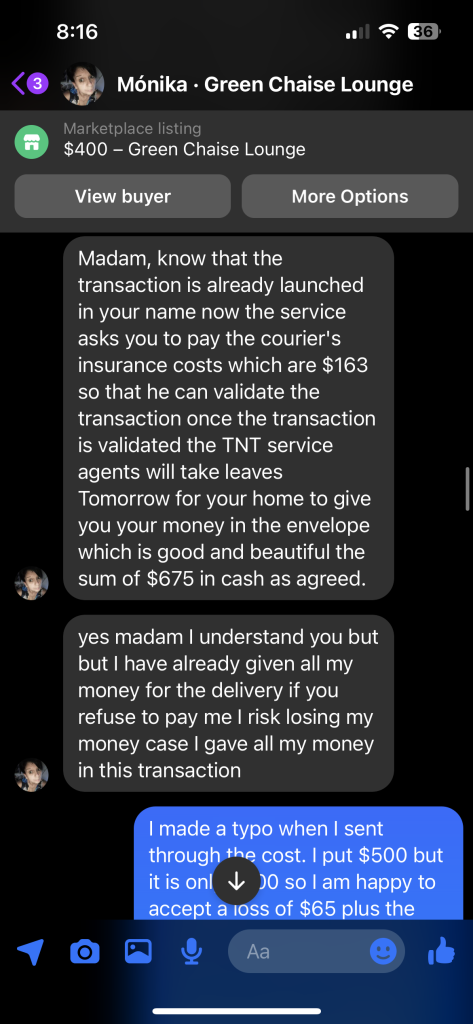
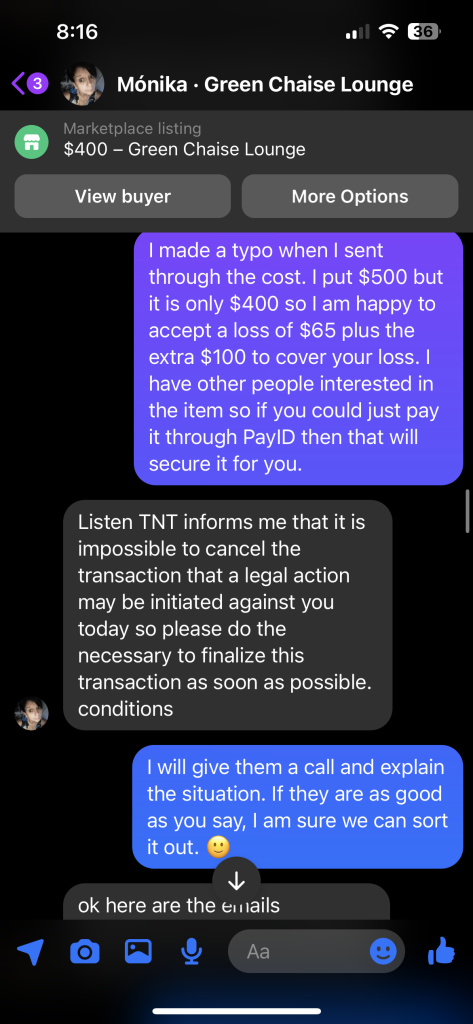
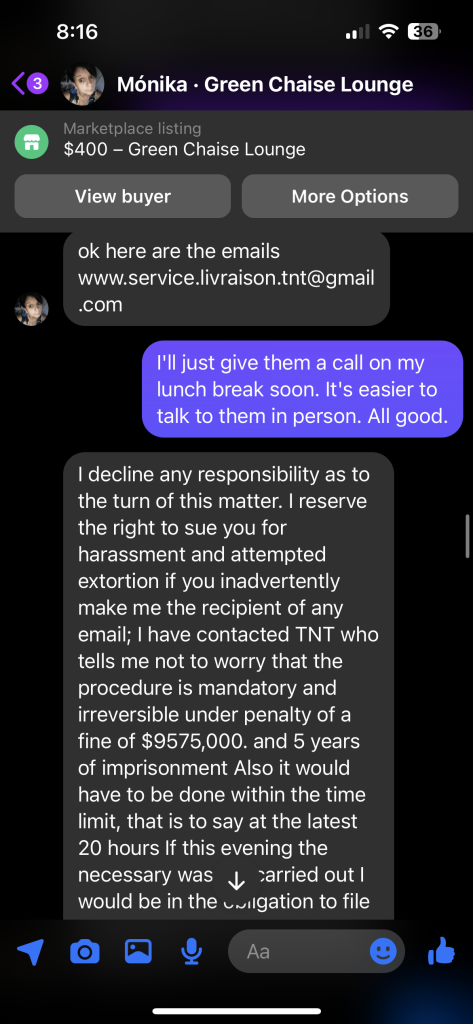
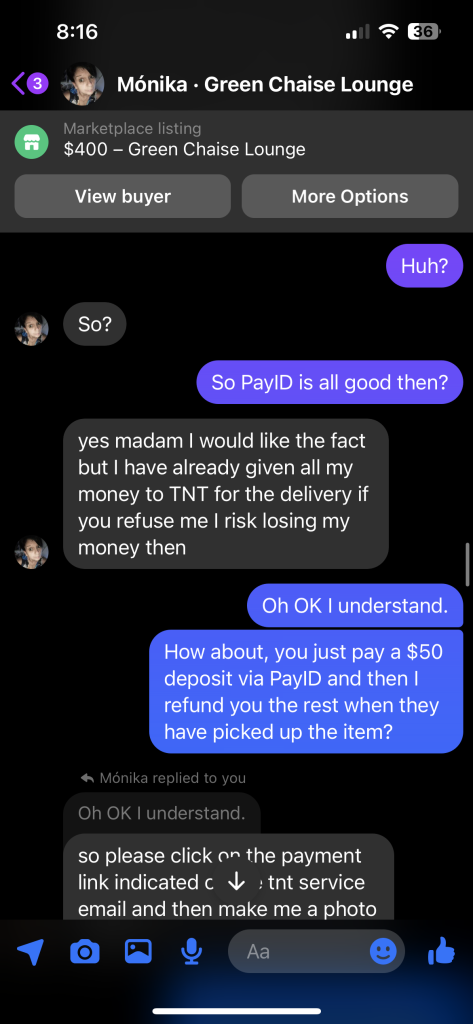
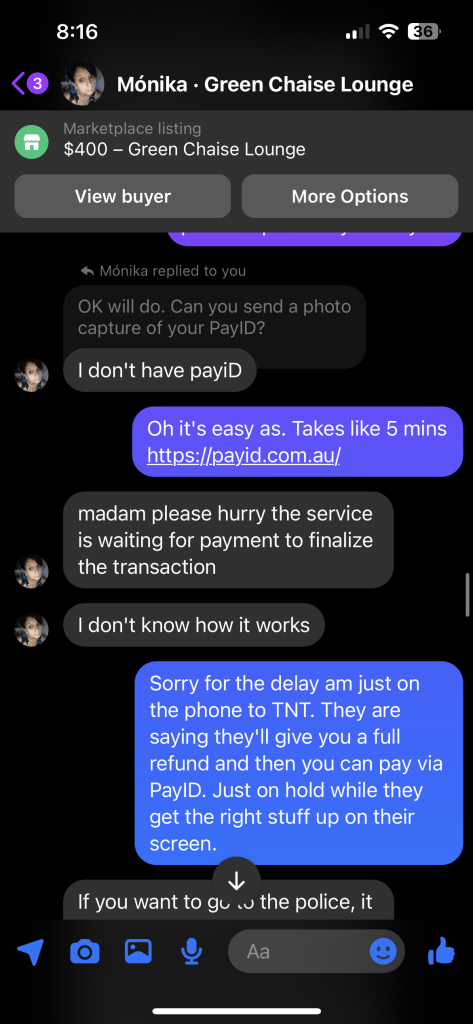

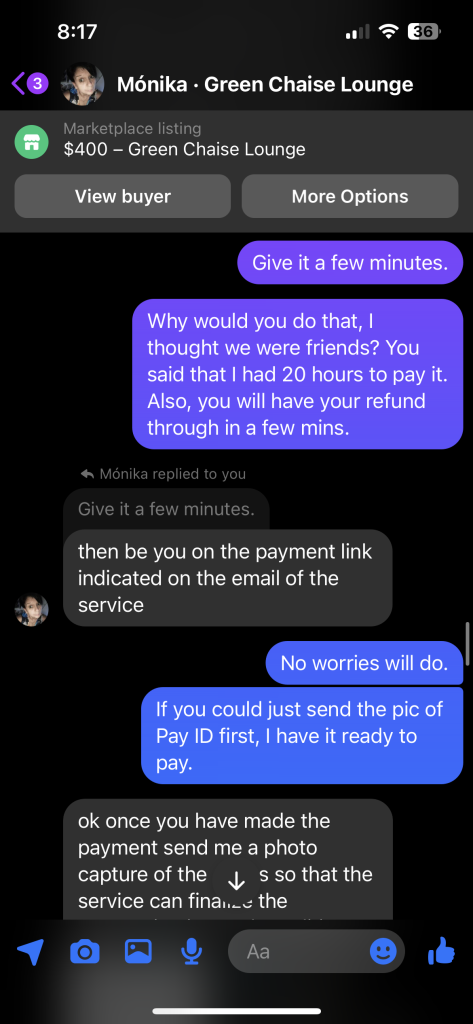
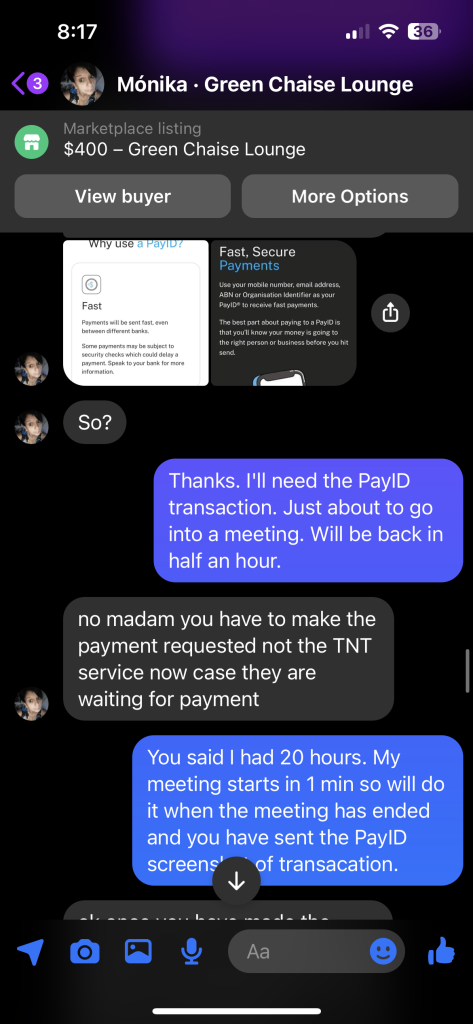



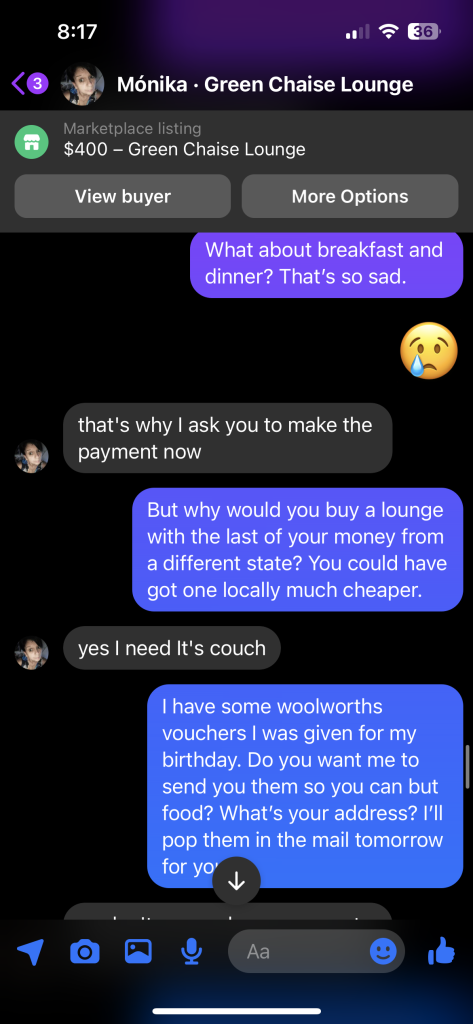



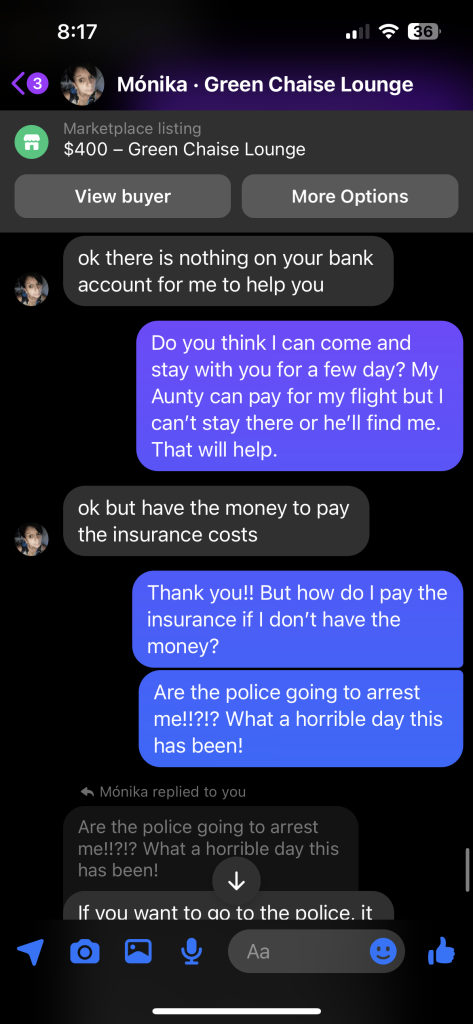
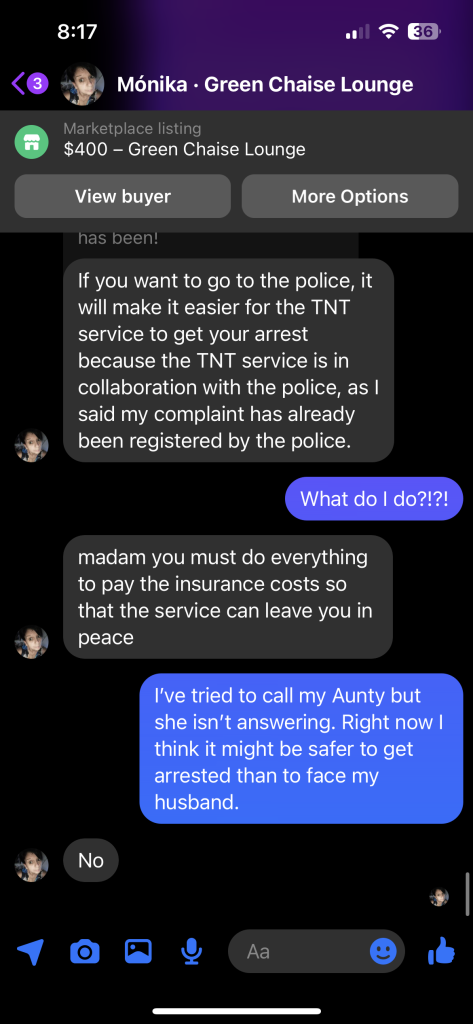




OMG, what a good read that was. Very helpful information too. I love Marketplace and haven’t had to deal with a scammer yet.
How lucky are you not to have had to deal with them yet. I think they might be on to me though. Since my article came out, I’ve only had one scammer contact me. I was hoping to get some screenshots of the PayID scam. They seem to be avoiding me! Haha